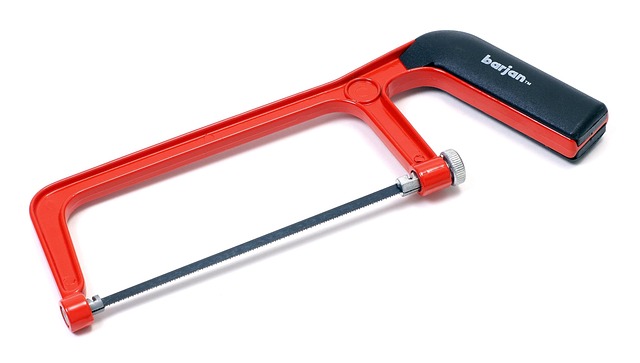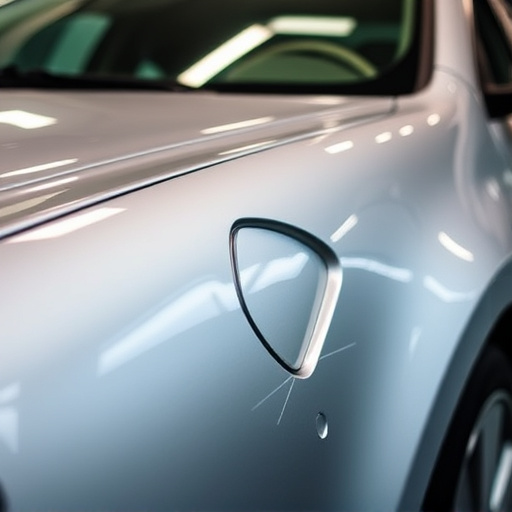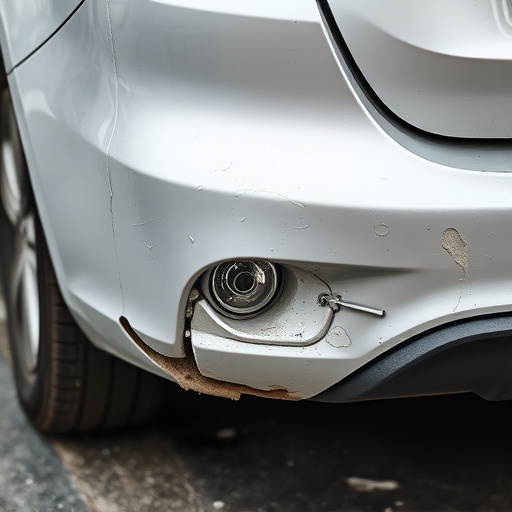The ultrasonic thickness gauge is a crucial tool for non-destructive testing of metal plates, shells, and composite materials across various industries. It ensures structural integrity by accurately measuring material thickness, aiding in repairs and quality control. In auto repair, it's vital for precision assessments, while in tank and pipe manufacturing, it detects defects early, preventing catastrophic failures. This technology is essential for maintaining safety standards and consistent product quality.
“In various industries, ensuring structural integrity and quality control is paramount. This is where an ultrasonic thickness gauge plays a pivotal role in identifying common repair scenarios. From metal plates and shells to tank and pipe manufacturing, this non-destructive testing tool offers precise measurements. It aids in detecting defects, delaminations, and corrosion, enabling efficient repairs. For composite materials, its capabilities extend to assessing their integrity without causing damage. This article explores these key applications of the ultrasonic thickness gauge.”
- Structural Integrity: Checking Metal Plates and Shells
- Quality Control in Tank and Pipe Manufacturing
- Non-Destructive Testing for Composite Materials
Structural Integrity: Checking Metal Plates and Shells

One of the most common applications for an ultrasonic thickness gauge is ensuring structural integrity in metal plates and shells. These components are vital in various industries, from automotive to manufacturing, where they play a crucial role in withstanding pressure and stress. An ultrasonic thickness gauge offers a non-destructive testing method to measure the thickness of these metal parts accurately. This is particularly important after any repair or damage, such as auto glass repair or car collision repair, where the structural integrity of metal panels and shells might be compromised.
By utilizing this technology, professionals in frame straightening and other related repairs can quickly assess the condition of their materials. The gauge’s precision allows for detailed analysis, ensuring that parts are not only visually inspected but also accurately measured to meet safety standards. This meticulous approach is essential in industries where even the smallest deviation from specifications can lead to catastrophic failures, highlighting the critical role of an ultrasonic thickness gauge in maintaining structural integrity.
Quality Control in Tank and Pipe Manufacturing

In the tank and pipe manufacturing industry, ensuring quality control is paramount to prevent defects and maintain safety standards. An ultrasonic thickness gauge plays a pivotal role in this process by providing accurate measurements of material thickness. This non-destructive testing method allows manufacturers to detect even the slightest variations in metal thickness, which can indicate potential issues like corrosion or structural weaknesses. By integrating an ultrasonic thickness gauge into their quality control processes, car repair shops and bodywork specialists can identify defects early in the manufacturing stage, saving time and resources compared to post-production collision damage repairs.
Regular inspections using this advanced technology help maintain consistent product quality. For instance, in the production of fuel tanks, accurate thickness measurements are crucial to prevent leaks and ensure the tank’s structural integrity. Similarly, in pipe fabrication, ultrasonic thickness gauges help detect defects that could lead to failure under pressure, making them indispensable tools for maintaining high-quality standards in both car repair shop settings and industrial applications.
Non-Destructive Testing for Composite Materials

Composite materials have revolutionized many industries, including automotive, due to their lightweight yet robust properties. However, their intricate structure and variable composition make traditional thickness measurement techniques inadequate for non-destructive testing (NDT). Here’s where an ultrasonic thickness gauge steps in as a game-changer. This advanced tool employs high-frequency sound waves to penetrate the material, allowing for precise thickness measurements without causing any damage.
For automotive repair professionals, this means accurate assessment of car body restoration projects. Whether it’s identifying delaminations, detecting voids, or monitoring resin infusion during composite manufacturing, the ultrasonic thickness gauge provides critical data for informed decision-making. By avoiding destructive methods that could compromise the structural integrity of components like car paint repair surfaces, NDT using ultrasonic gauges ensures the longevity and safety of vehicles undergoing restoration or assembly lines requiring meticulous quality control.
An ultrasonic thickness gauge is an indispensable tool for various industries, offering non-destructive testing solutions for diverse materials. From ensuring structural integrity in metal plates and shells to quality control during tank and pipe manufacturing, these gauges are versatile. Moreover, they play a pivotal role in evaluating composite materials without causing damage, making them a game-changer in many repair scenarios. By leveraging the power of ultrasonic technology, professionals can promptly assess thickness, identify issues, and make informed decisions, ensuring top-notch quality across industries.














